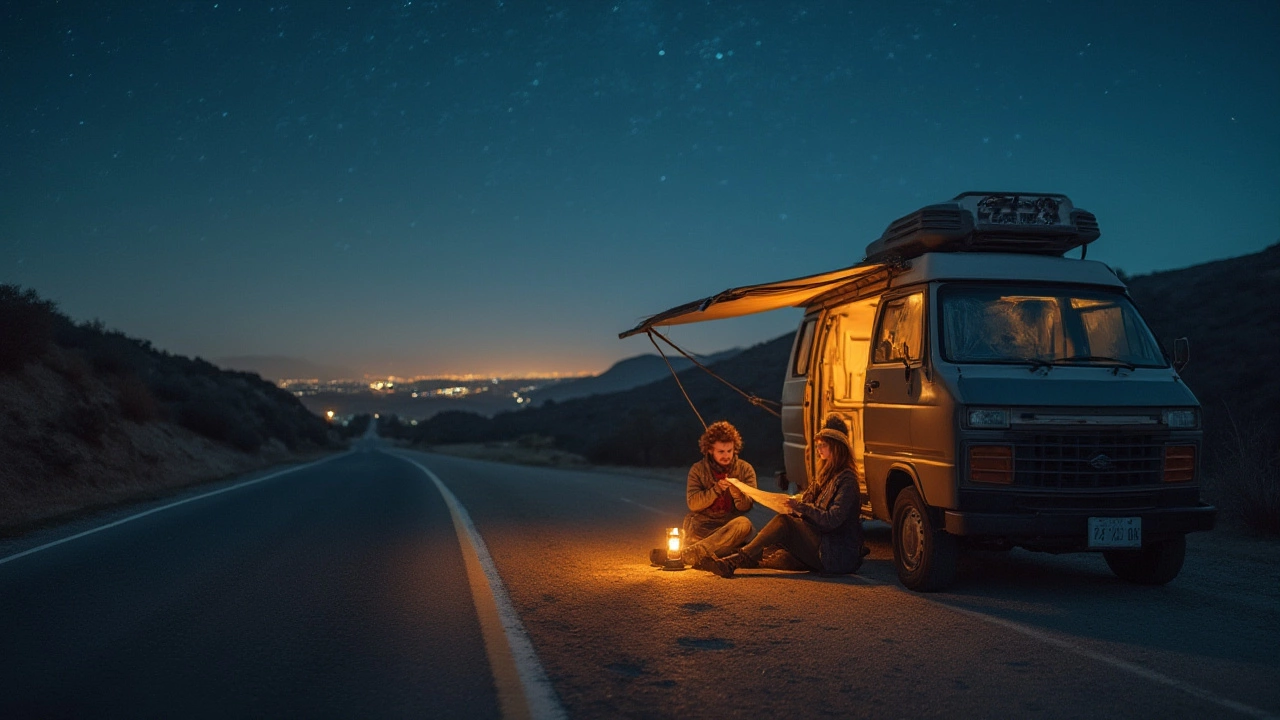How to Sleep on the Side of the Road in California – Safe & Legal Tips
Ever rolled into a scenic spot in California, turned off the engine, and wondered if you can just park and crash for the night? You’re not alone. Many road‑trippers do it, but the rules can feel fuzzy. This guide cuts through the noise and gives you straight‑forward steps so you can rest without a ticket or a bad night.
Finding Legal Overnight Spots
The first thing to check is whether the land is public or private. State highways usually forbid overnight parking, but many rest areas on the interstates allow a few hours of sleep. Look for signs that say “RV Parking – 24 hrs” or “Rest Area – Overnight Stay Allowed.” If the sign is missing, assume it’s not permitted and keep moving.
Truck stops are another gold mine. Chains like Love’s, Pilot, and TA let you park for free or a small fee, and they often have lights, restrooms, and even Wi‑Fi. Just roll in, set up, and be ready to leave before the next morning rush. Same goes for some big‑box stores – Walmart, Cracker Barrel, and some supermarkets let you stay for a night, but always ask the manager first to avoid a surprise.
Churches, schools, and community centers sometimes open their parking lots after hours. A quick phone call in the afternoon can save you a spot for the night. They’ll tell you any rules they have, like no loud music after 10 pm. Being polite goes a long way and often gets you a safe place to crash.
Staying Comfortable and Safe
Comfort starts with a good sleeping pad or an inflatable mattress that fits your vehicle’s floor. Bring a window cover – a cheap Reflectix sheet works wonders for privacy and insulation. Crack a window a few inches and use a magnetic bug screen to let fresh air in while bugs stay out.
Safety is all about visibility and lock‑up. Keep your doors locked, windows up, and lights off. A small LED strip inside helps you find the switches in the dark without turning on the main lights. Store valuables out of sight, either in the trunk or a lockable bag.
Don’t forget the basics: a water bottle, a flashlight, and a phone charger. A portable power bank keeps your phone alive for emergency calls. If you’re in a remote area, a small first‑aid kit and a whistle can be lifesavers.When you’re ready to leave, do a quick sweep of the area. Make sure you haven’t left trash, food, or anything that could attract wildlife. Clean up any footprints or tire marks if local rules require it.
Quick checklist before you hit the road: check signs, ask for permission if needed, set up a window cover, lock doors, keep lights low, and pack out all trash. Follow these steps and you’ll sleep on the side of the road in California without a hitch.
-
 VIEW POST
VIEW POSTCan You Legally Sleep on the Side of the Road in California? Rules, Risks, and Realities
Jul, 31 2025|0 CommentsCurious if you can legally sleep on the side of the road in California? This article explains laws, risks, and smart tips for road trippers and urban campers.